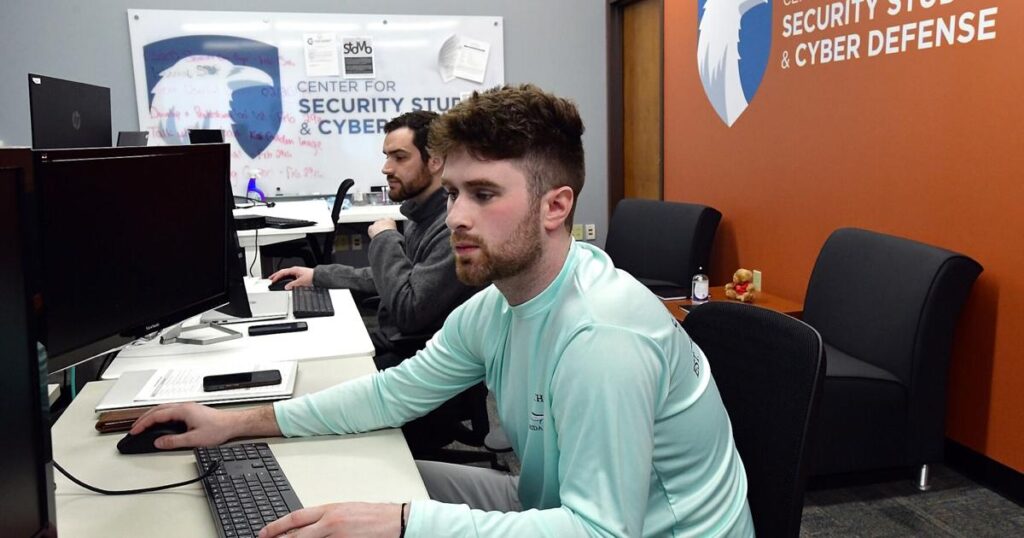ANDERSON — Water utilities across the United States are at increased risk of cyberattacks from hackers with ties to China, Iran and other countries hostile to U.S. interests, according to a recent warning issued by the Environmental Protection Agency.
The threats highlighted in the agency's letter have brought new attention to a profession that is expected to see significant growth over the next few years, particularly in Indiana: The Indiana Economic Development Corp. is projecting a 3 percent increase in cybersecurity systems engineers this year, with up to 20,000 related job openings expected in the field.
Among them are IT professionals who work with local governments to protect various categories of infrastructure, such as public water utilities and emergency communications systems.
Those developing the curriculum for Anderson University's cybersecurity specialty degree program say these professionals need to enter the workplace prepared to stay one step ahead of hackers in a variety of online environments.
“There's this idea that local governments aren't prepared for what's coming, but they don't necessarily trust state or federal governments to step in and help them because they feel they're being watched or looked down upon,” said David Dungan, executive director of the AU's Centre for Security Studies and Cyber Defence.
“What we've proposed is that universities can act as a kind of intermediary between the two parties and use their students and student interns to help strengthen cybersecurity at least to some extent.”
Dungan said the Indiana Department of Technology regularly provides risk assessments to local governments, but those agencies often have few resources to address any issues that are discovered. Still, around-the-clock monitoring of computer systems is a priority for local governments, and Anderson has five full-time employees in its IT office and plans to soon add a sixth.
“We also utilize a secure third party that monitors systems across the county and sends alerts that our IT department uses to thwart attacks,” said Neil McKee, Anderson Water Department director.
McKee added that the city regularly receives and follows recommendations from the Department of Homeland Security to protect physical structures such as wells and power lines.
Anderson has four IT employees at City Hall and two at the Anderson Police Department. The city regularly hires IT and information systems interns to augment its staff, and Mayor Thomas Broderick Jr. said those internships often turn into full-time employment upon graduation.
“We support Anderson University and its cyber program and will host interns and new hires from their program,” Broderick said, noting that qualifications for IT jobs often include professional certifications in networking, hardware, software and specific cybersecurity protocols.
“There are a number of certifications that may be applied depending on the needs at the time,” he said.
Dungan said the rapidly evolving nature of artificial intelligence chatbots will perpetuate a virtual chess match between hackers and cybersecurity experts, meaning programs like AU will have to be agile and adapt their curricula to adequately prepare students for unforeseen problems.
“Everybody knows what AI is, but nobody actually knows what AI is,” Dungan says. “The key is to work closely with your business partners to understand what they're looking at, what they need to focus on, and keep an eye on what's going to happen in the next six months to a year.”
“By doing what we do, teaching (students) the way we do and preparing them the way we do, they'll be ready on the day they graduate.”
to follow Andy Knight Follow him on Twitter @Andrew_J_Knight or call him at 765-640-4809.


